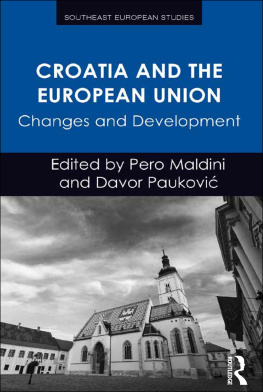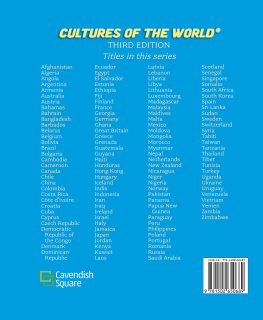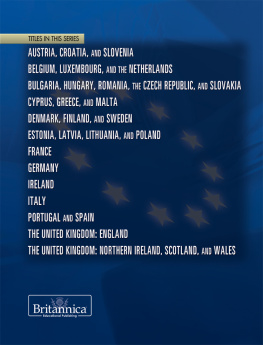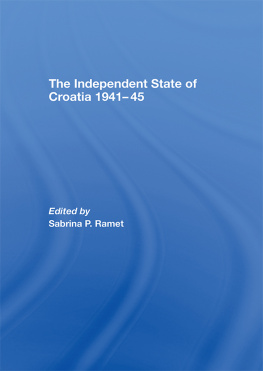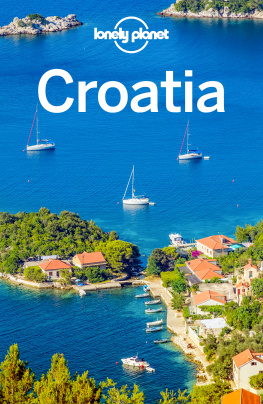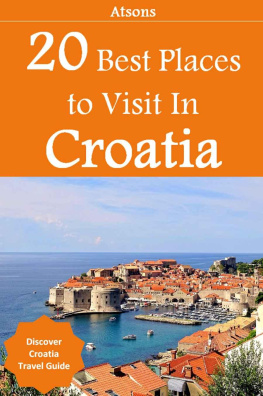CROATIA AND THE EUROPEAN UNION
Southeast European Studies
Series Editor: Florian Bieber, Centre for Southeast European Studies, University of Graz, Austria
The Balkans are a region of Europe widely associated over the past decades with violence and war. Beyond this violence, the region has experienced rapid change in recent times, including democratization and economic and social transformation. New scholarship is emerging which seeks to move away from the focus on violence alone to an understanding of the region in a broader context drawing on new empirical research.
The Southeast European Studies Series seeks to provide a forum for this new scholarship. Publishing cutting-edge, original research and contributing to a more profound understanding of Southeastern Europe while focusing on contemporary perspectives the series aims to explain the past and seeks to examine how it shapes the present. Focusing on original empirical research and innovative theoretical perspectives on the region, the series includes original monographs and edited collections. It is interdisciplinary in scope, publishing high-level research in political science, history, anthropology, sociology, law and economics and accessible to readers interested in Southeast Europe and beyond.
Forthcoming titles in the series
Social Inequalities and Discontent in Yugoslavia
Edited by Rory Archer, Igor Duda and Paul Stubbs
Negotiating Social Relations in Bosnia and Herzegovina
Edited by Stef Jansen, arna Brkovi and Vanja elebii
Civic and Uncivic Values in Montenegro
The Challenges of Democratic and Value Transformation in a Society in Flux
Edited by Kenneth Morrison and Kristen Ringdal
Romania and the Quest for European Identity
Philo-Germanism without Germans
Cristian Cercel
Croatia and the European Union
Changes and Development
Edited by
PERO MALDINI and DAVOR PAUKOVI
University of Dubrovnik, Croatia
First published 2015 by Ashgate Publishing
Published 2016 by Routledge
2 Park Square, Milton Park, Abingdon, Oxon OX14 4RN
711 Third Avenue, New York, NY 10017, USA
Routledge is an imprint of the Taylor & Francis Group, an informa business
Copyright Pero Maldini and Davor Paukovi 2015
Pero Maldini and Davor Paukovi have asserted their right under the Copyright, Designs and Patents Act, 1988, to be identified as the editors of this work.
All rights reserved. No part of this book may be reprinted or reproduced or utilised in any form or by any electronic, mechanical, or other means, now known or hereafter invented, including photocopying and recording, or in any information storage or retrieval system, without permission in writing from the publishers.
Notice:
Product or corporate names may be trademarks or registered trademarks, and are used only for identification and explanation without intent to infringe.
British Library Cataloguing in Publication Data
A catalogue record for this book is available from the British Library.
The Library of Congress has cataloged the printed edition as follows:
Croatia and the European Union : changes and development / [edited by] by Pero Maldini and Davor Paukovic.
pages cm. -- (Southeast European studies)
Includes bibliographical references and index.
ISBN 978-1-4724-3185-1 (hardback) -- ISBN 978-1-3155-7512-4 (ebook) -- ISBN 978-1-3171-5696-3 (epub) 1. European Union--Croatia. 2. Democratization--Croatia. 3. Croatia--Politics and government--1990- I. Maldini, Pero, editor.
HC240.25.C87C86 2015
341.2422094972--dc23
2015011060
ISBN 9781472431851 (hbk)
ISBN 9781315575124 (ebk-PDF)
ISBN 9781317156963 (ebk-ePUB)
Contents
Pero Maldini and Davor Paukovi
Pero Maldini
Davor Paukovi and Vieslav Raos
Davor Paukovi
Neboja Blanua
Ivan Landripet
Vjeran Pavlakovi
Nataa Beirevi
Vieslav Raos
Marijana Musladin
List of Figures and Tables
Figures
Tables
Notes on Contributors
Nataa Beirevi, PhD, graduated at the Faculty of Political Science University of Zagreb. As a chevening scholar of the UK government she obtained an MA degree at the University of Sussex in Contemporary European Studies in 2004. She finished PhD studies on the EU at the Faculty of Political Science and defended the PhD thesis in 2012 on EUWestern Balkans relations. As a post-doctorate scholar of the US government she obtained a post-doctoral fellowship at UC Berkeley, in the Department of Political Science, EU Centre of Excellence. From 2002 until 2007 she worked at the Ministry of European Integration/Ministry of Foreign Affairs, finished diplomatic studies and since 2007 has worked as a research assistant/assistant professor on several EU-related courses. She has published several scientific papers on the EU, the Western Balkans, European Community enlargement, Europeanization, democratization, and nationalism. Beirevi is Sussex University alumni consul and consultant on the EU projects in the Western Balkans.
Neboja Blanua, PhD, is Assistant Professor of Political Psychology at the Faculty of Political Science, University of Zagreb, head of the scientific project Public, Elites, Media and Communication Strategy of Croatian Accession to the European Union, and collaborator at the international scientific projects of European Cooperation in Science and Technology (COST) Action ISO806: The True European Voter and FP7 project Social Performance, Cultural Trauma and Reestablishing Solid Sovereignties (SPECTRESS). His main research interests concern political psychoanalysis, nationalism, conspiratorial thinking, cultural trauma, political cynicism, political behavior, historical and political cleavages, Euroskepticism, social science research methods, etc. He is author of the book Conspiracy Theories and Croatian Political Reality 19802007 (Plejada, 2011, in Croatian), and a member of several domestic and international journal editorial boards. He teaches courses in social and political psychology, politics and art in south-east Europe, and the political unconscious.
Ivan Landripet, PhD, is a lecturer and researcher at the Department of Sociology, Faculty of Humanities and Social Sciences, University of Zagreb. His main research interests are divided between the sociology of European integrations, particularly popular Euroskepticism, and the sociology of sexuality. Alongside 12 nationally-funded research projects, he has collaborated on a Framework Programme 6 project focused on social and cultural underpinnings of corruption in south-east Europe and a PHARE program project on Euroskepticism in Croatia. His thesis, as well as a monograph that he edited and co-authored, examined popular support for European integration in Croatia. He is editor in chief of Sociological Review, the official journal of the Croatian Sociological Association.
Pero Maldini, PhD, is Associate Professor at Department of Mass Communication at the University of Dubrovnik (former Head of Department), current Head of Interdisciplinary Doctoral Study of Communication Science at the University of Osijek, and Head of Department for Intercultural Communication at Edward Bernays College of Communication Management in Zagreb. He teaches several courses in political science at undergraduate, graduate, and doctoral studies at the three universities. His research interests are comparative politics, democratization, democratic transition, political culture, and Croatian politics. He has published two books and one edited volume, and a number of papers and book chapters in the field of comparative politics, democratic theory, political culture, media and politics, political education, and presented his works at more than 20 international conferences. He has received several international grants for research training abroad in the USA, the Netherlands, Hungary, and Slovakia. He is a member of the Executive Board of the Croatian Political Science Association and a member of three journal editorial boards.

